CUBA SKATE: INTERVIEW WITH MILES JACKSON
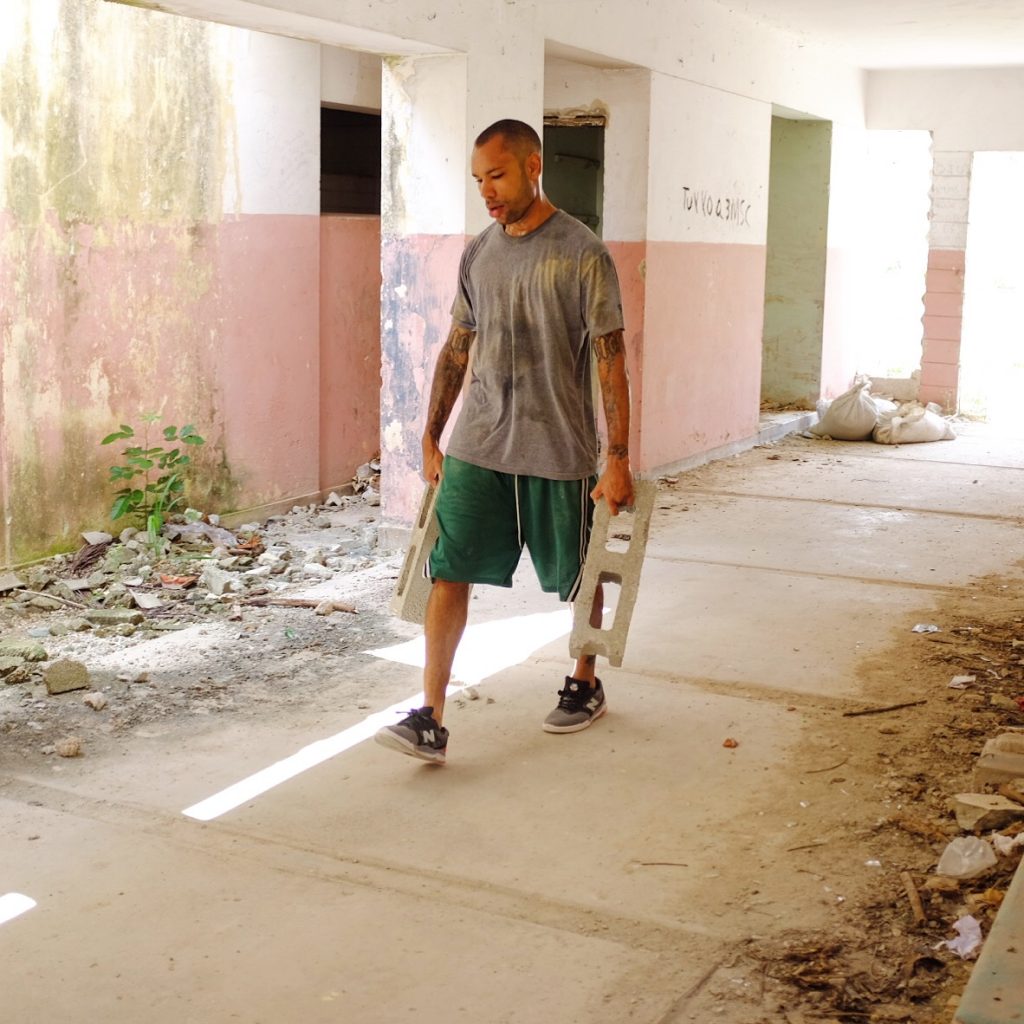
Skateboarding has always been about making the best with whatever you have. Even though the current reality of the world is challenging, skateboarders like Miles Jackson of Cuba Skate are doing everything they can to stay positive and keep skateboarders and their organization going. We originally talked with Miles pre-COVID-19, but recently checked back in to see how Cuba Skate is rising above the challenges.
What’s up Miles? Since we first talked a lot has changed in the world due to the pandemic. How has it affected the Cuba Skate organization so far?
Yeah, it’s crazy just how much things have changed the last few weeks! We were planning to host our first ever Havana Skate Festival on April 3-5, so we were bummed that we had to postpone that to the Fall (fingers crossed!). It was a tough decision to make early on in March, but obviously looking back now, that was the only decision we could’ve made.
Otherwise, we’ve lost a few donors because of the unprecedented financial effect, but have been fortunate to land a few more. We’re going to apply for federal support and hopefully can tap into funding to help alleviate the current lack of revenue. It’s a tough situation for all businesses and small nonprofits across the world, but we’re focused on taking things day by day and staying upbeat and positive.
What have you been doing to keep things moving forward for Cuba Skate?
We’ve looked back on our impact and programs and are brainstorming to improve and elevate our work. We applied for a few grants, and we’re hoping to get funding as we develop new programs in 2020. We started a recycling project in October, and on our last mission trip in January, we visited the local beaches and led clean up efforts. We partnered with a local warehouse that turns plastic waste into “recycled lumbers,” and the picnic tables and other objects they produce are amazing to skate!
So we’re excited to keep building that relationship, while also expanding our programs to be stewards of the environment and to nurture Cuba’s beautiful coastlines. It’s a great project because it’s fun and rewarding, and it shines a new light on skaters in the eyes of the public — so a win-win for sure!
Otherwise, we’ve been encouraging our team, staff and participants to stay home, go out for a solo skate because it’s important to stay active, and to read books, watch skate videos, stay entertained, healthy and sane! It’s tough for all of us, but we understand it’s a global team effort. Our staff in Cuba are also hosting Instagram “best trick at home” contests, which is a lot of fun.
And lastly, we’ve been in touch with Ryan Clements and his team at The Boardr. We’re working out details on partnering with them for the Havana Skate Festival, which again with fingers crossed, we can host in the Fall. Ryan’s a tremendous mentor and knows the skateboarding industry and event planning on a whole other level. So our team is very excited at that possibility, as we’re confident it will elevate a great festival to one that will be an annual celebration with the best of the best from around the world.
It’s incredible to see what you’ve done through Cuba Skate and how much it has grown over the years, how did you first get started?
Thanks, man! My partner and I studied abroad in Havana back in January 2010, lived in a neighborhood where there was a skate plaza, and almost immediately became good friends with the local skaters. After 3 incredible months on the island, we were genuinely impacted by their energy and the difficult situation for skaters in Cuba — no skate shops, parks, or access to resources — so when we returned home we felt burdened to create a project to help support our homies. We started a Cuba Skate blog then fundraised for about 8 months, and took our first trip back in December of 2010.
Did you have a clear idea of what you wanted to do right away, or did it grow and change through experimenting along the way?
Yes and no. Lauren always said, “In America, we have access to everything and an excess of everything.” With that in mind, our initial intent was just to collect the product and bring it down. Then after a few trips, we realized we could, and should, do more. As the project grew and I started taking more trips, we’d fundraise more and put those dollars towards DIY builds.
Over the first few years, we faced a lot of challenges as many others do with launching new projects. But even more so because of the US – Cuba relationship and the political issues with the US Embargo and difficulty traveling to Cuba. Anyways, as we encountered hurdles we worked with friends, lawyers, skaters, etc. to help us logically and legally resolve any issues. Our project continued to grow and as we were building awareness, we decided to fully pursue making Cuba Skate a 501c3 nonprofit organization, and that was a big milestone for us.
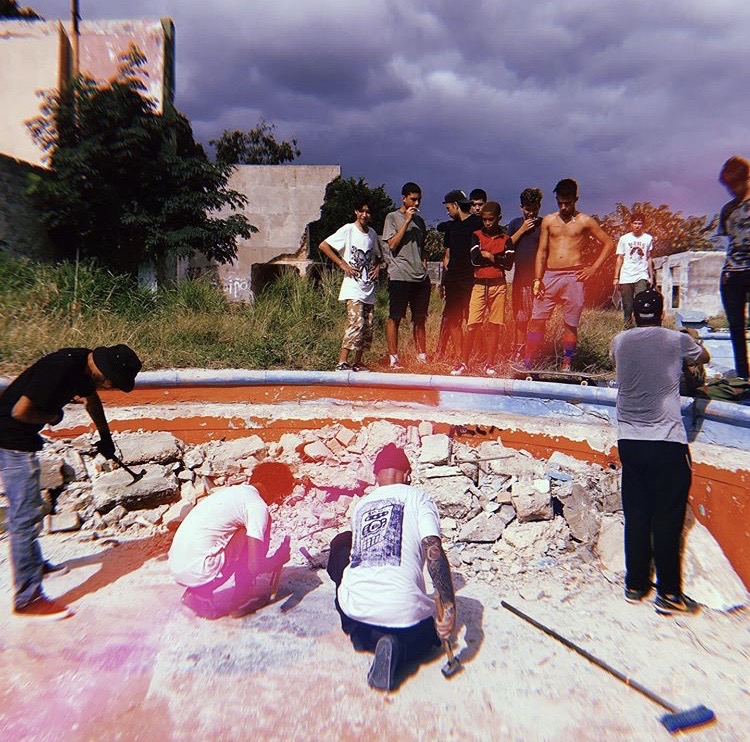
What sort of role does used skate gear play in Cuba Skate’s work? How do you usually collect the product and decide what to do with it?
Well when we first started, we’d take down any product we could get our hands on. Now, we have the support of DLXSF, Baker Boys, and a lot of other companies, shops, and pros that work with us. So now instead of taking used products, we encourage folks to bring anything down on their own to Cuba. We are always stoked of course when people want to help, but as you can’t ship to Cuba, we’ve focused on bringing only new products on our monthly trips. Our staff in Cuba distribute all the products to skaters in need and beginners. We’ve veered away from contests, and developed a merit-based system. So let’s say you want a new pair of shoes, wheels, or whatever it is that you need, you have to clock in hours mixing cement at the DIY, or working at the woodshop. That’s been a great transition for us because now we’re not only supporting you in your journey, but you’re supporting the entire community and it’s a really rewarding process.
On the ground in Cuba, we started collecting broken and recycled skateboards in 2017 or so. We started bringing down wood tools — saws, sanders, drills, and a bunch more — and created a woodshop where our staff will re-purpose broken skateboards. That’s been a wonderful element of our programs, because we encourage recycling, and embrace the Cuban mentality of “making something out of nothing.” We’ve learned the process of manufacturing boards, and how remarkable plywood is and what you can transform something that was once considered trash into a household item, a DIY tool, or a piece of jewelry.
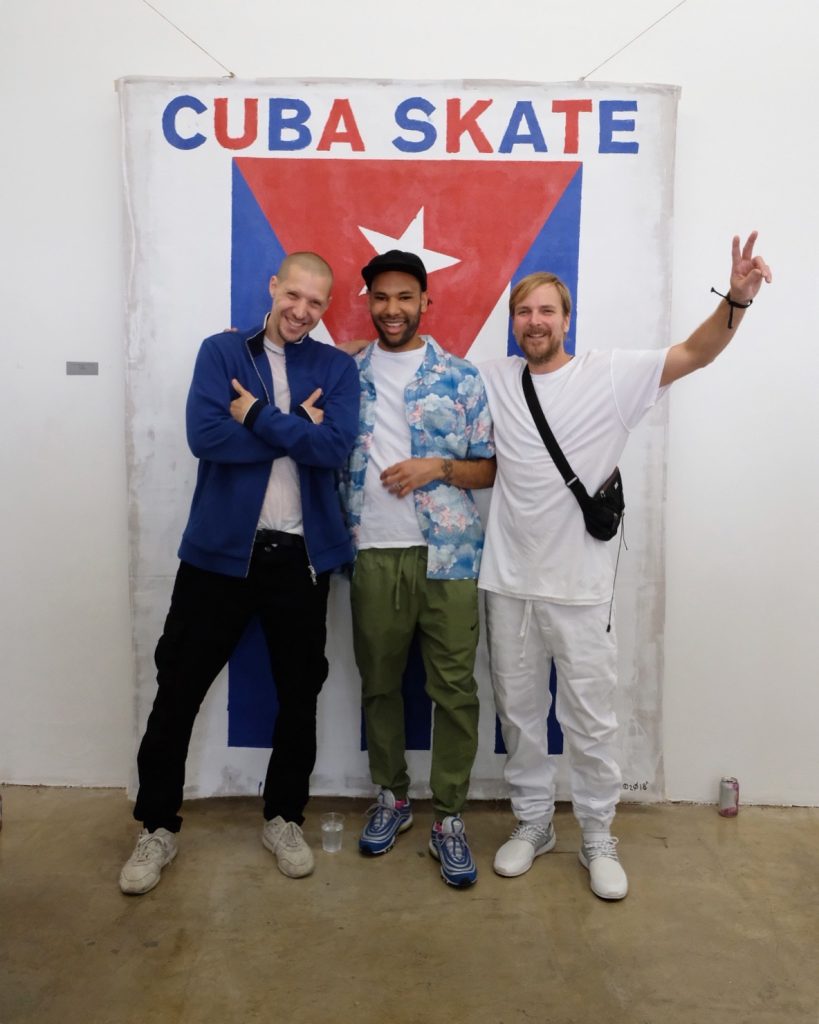
You also hand-make some skateboards as well, correct? What sparked the idea to create your own?
Yessir, we do! Well, we’re very grateful to all of our donors and have 100s of boards in storage waiting to be delivered to Cuba, and that’s something I never would’ve imagined 10 years ago. But then we came to the realization, it’s crucial to give away gear, but at the end of the day, how have we made our participant’s lives better by just giving things away. What if we could learn how to manufacture boards and teach life lessons that will be valuable to them when they’re not skating?
It’s also been fundamental to our organization to create sustainability in Cuba. There is a tremendous lack of resources, but let’s do our part to set the foundation for a better reality. We started pressing boards with a vacuum-sealed plastic bag machine, and that was cool, but the boards weren’t really skate-able. But that was a great learning process.
Then last summer I brought down a wood skate press that uses clamps, and that’s been a game-changer. I’ll bring down maple veneers from Canada and glue, and we’ve made 15 or 20 boards that have been really solid. In January, Madars Apse came down and snapped one of his boards, then he came by the woodshop and got to press and cut one, and asked if he could set it up. We were nervous because Madars is a big, strong dude, but he skated it the entire week and said it was perfect.
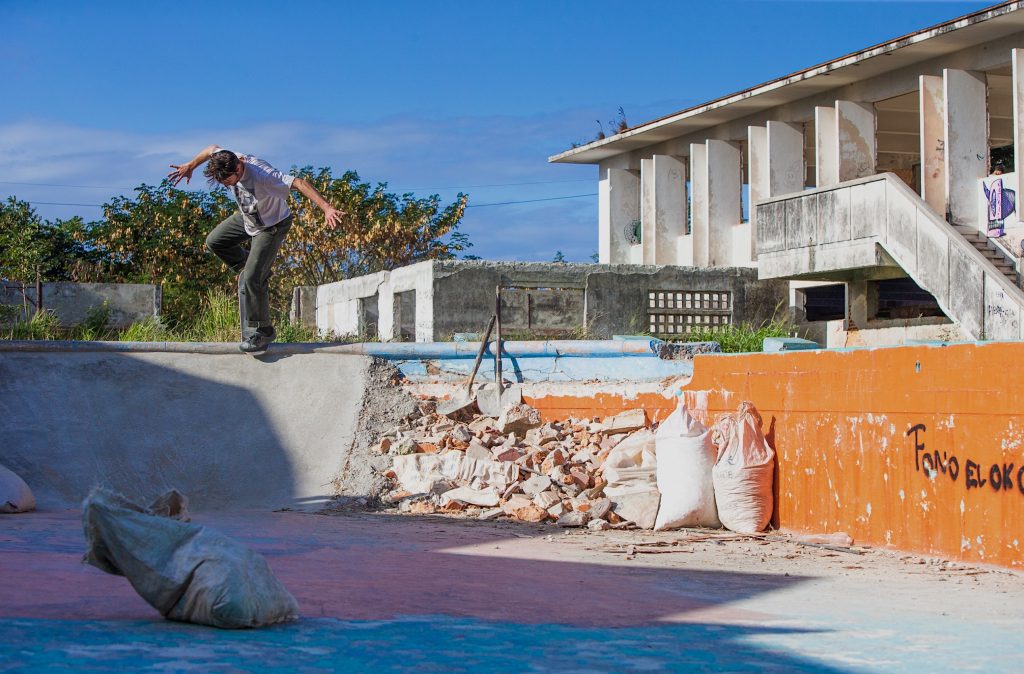
What are some of the best learning experiences you’ve had in your time with Cuba Skate? Has it changed the way you view skateboarding and the global skate community at all?
Man, I’ve learned so much these past 10 years, personally and professionally. I’m grateful to have been able to pursue a passion of mine and work with a number of people who’ve helped and supported me along the way. And there’s been a lot of highs and lows, but that’s definitely part of the journey.
I’ve become a jack of all trades in many ways, I’ve learned how to mix cement (by hand) and build rad DIY parks, how to recycle and manufacture boards, how to fundraise and manage a nonprofit, develop relationships with the right partners globally and in Cuba, how to earn respect and make an impact in Cuba, and I’d say most importantly, how to lead. Everything that Cuba Skate has accomplished in our 10-year span started with an idea from me, or a friend or family member. And I quickly learned that in order to be successful and make a lasting impact, it’s got to be a collective effort. We’ve got to work together, know what you don’t know, and consult with those who do.
I’ve still got a lot left to learn — like kickflips ; ) — but I’m reminded that I don’t think a project like Cuba Skate could have been a soccer or basketball project. Skateboarding instills truly valuable community skills, personal development skills, and the genuine nature of the culture and sport that are rooted in the community. I went back to Georgetown for a certificate program in nonprofit development, and all the other students were so amazed by Cuba Skate. In addition to all the textbook lessons I learned, I really better understood how special of a project we are because of skateboarding.
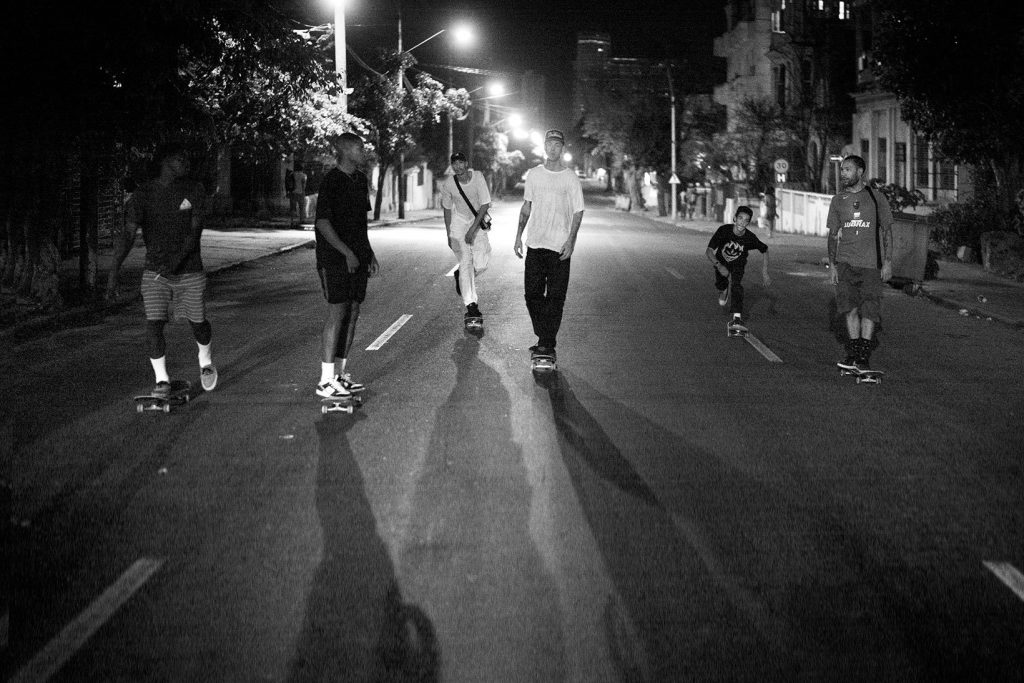
You are based out of LA, DC and Havana Cuba, do you have specific skate shops or companies that you partner with for your work in Cuba?
Yup a bunch! Familia in Minnesota (Nesser’s been a couple of times to Cuba and believes in what we do), FTC in SF (Ando’s been amazing!), Arts-N-Rec in SD which is Kellen James shop, but the homie Zack Mack is the real legend who helps out there, our friends in DC run a shop called Crushed and they’ve been incredible, Olympia Skate in Ypsilanti, run by the homie Steve Risner. He was the first to ever donate gear to Cuba Skate back in 2010, and he’s been an amazing mentor to me especially with DIY building (he’s built a million and one DIY spots all around Ypsi and Detroit), and German Nieves and Paterson have been a huge support as well. Travel Skate Shop in New Jersey donated the wood press to us last year… and companies… Baker’s been wonderful, as Reynolds came to Cuba with us in 2016 and one of their sales directors joined us in 2017 so they’ve really been supportive, the NB# family came on a couple of trips (with Skate Wild Foundation) and they send us boxes all the time (thanks Dylan!), Converse CONS is another long time donor thanks to Lee Berman, John Erickson and Tom Remillard who’ve all been to Cuba with us, and the past couple years, Stevie Perez and James Capps and Nestor Judkins have been to Cuba with us and they’ve gotten Lakai and Adidas and all the respective companies they skate for to make product contributions. And DLXSF! I’d be remiss if I didn’t mention all the products and support we’ve gotten from all the brands and people up there!
If someone is looking to help out Cuba Skate right now or other nonprofit skate organizations, what would you recommend?
I think the best move right now is making a donation, if possible of course. Otherwise, sharing our story and fundraising is always an impactful way to help our organization. We had a volunteer who hosted a Facebook fundraiser, raised $1,000, and his employer is matching the donation. Obviously, we don’t assume everyone has the finances to toss out big bucks right now, but we are securing funds to go towards on the ground needs for the Cuban people, and more than skateboarding, that’s our primary focus right now.
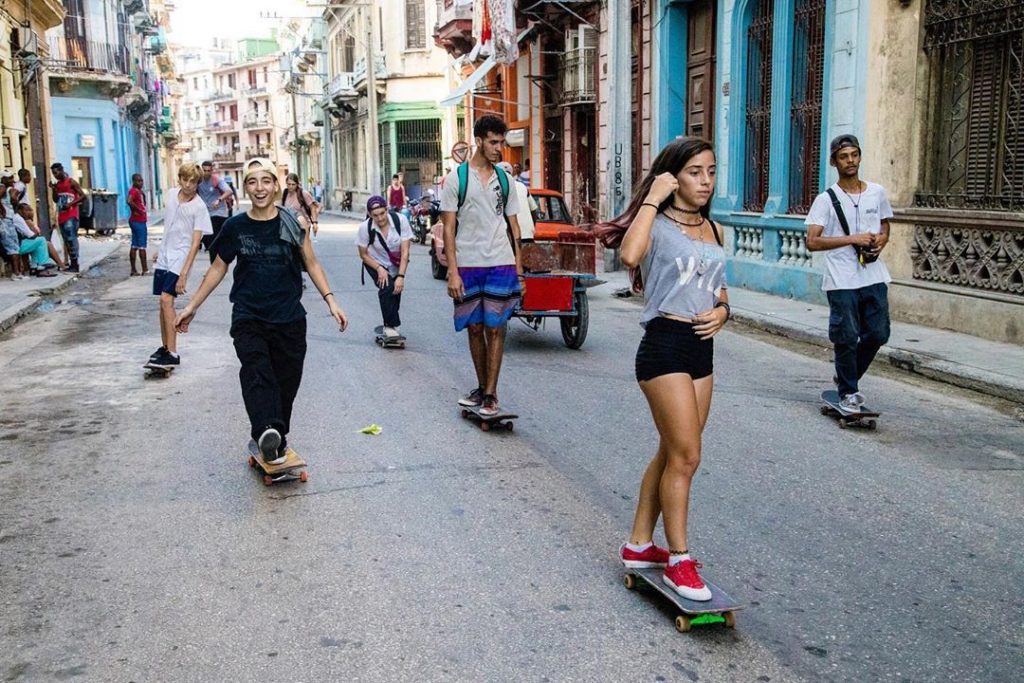
Thanks to Miles and everyone involved in Cuba Skate. To learn more about their amazing work. Check out their website at cubaskate.com/

